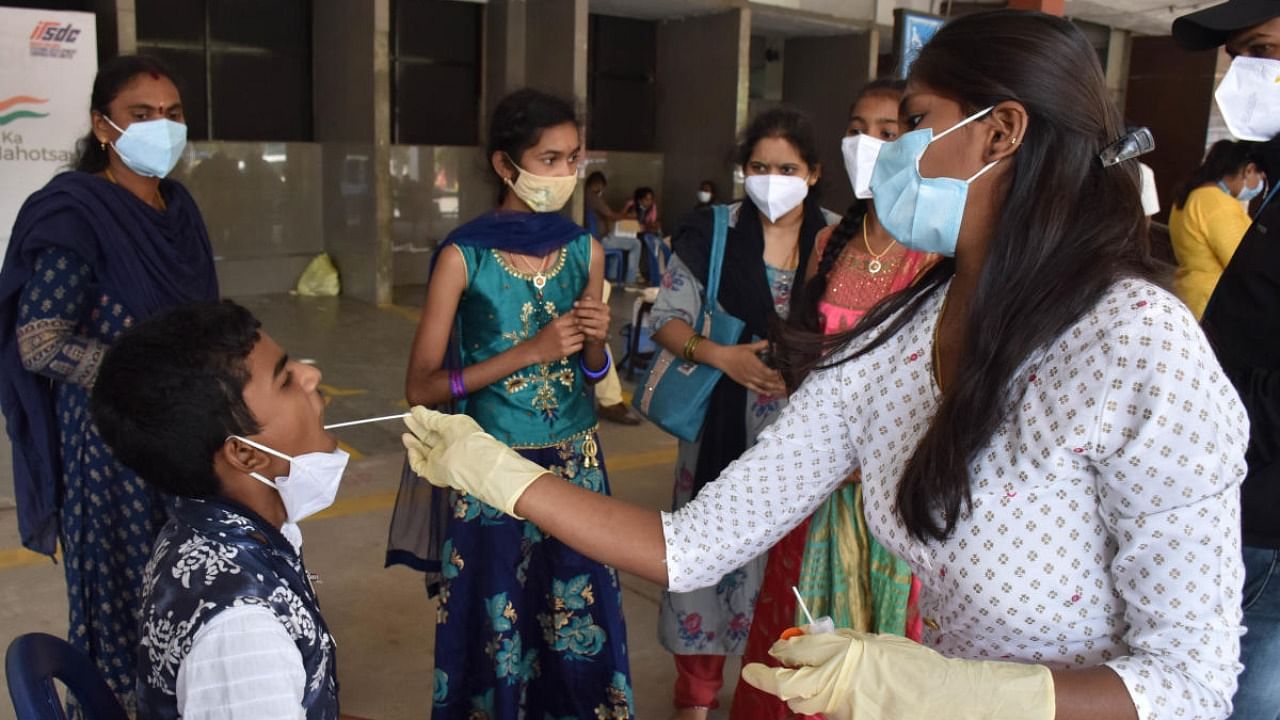
India has registered 172 cases of Omicron in less than three weeks, with a top virologist stating that it is not an “insignificant number” and that many infections could be going unreported.
Data shows that more Omicron cases were reported in fewer days than the original B.1 novel coronavirus which triggered the pandemic in January 2020.
The heightened concerns come at a time when the variant is triggering lockdowns in Europe, where cases are surging rapidly, besides plunging a virus-weary world into a state of uncertainty.
As of Monday evening, as per information collated by the Institute of Genomics and Integrative Biology (CSIR-IGIB), 172 cases of Omicron had been recorded, including 54 in Maharashtra, 28 in Delhi, 20 in Telangana, 19 in Karnataka, 17 in Rajasthan, 15 in Kerala and 11 in Gujarat.
The first Omicron case was reported in Karnataka on Dec 2 — a 66-year-old South African pharma executive who left the country with a fake RT-PCR report on Nov 27. The most recent case is of a 19-year-old traveller in West Bengal which was announced on Monday. These cases were racked up in a span of just 18 days.
In comparison, it took the country 48 days, between Jan 30 and March 18, 2020, to record a comparable 171 cases in the first wave as per the pandemic data.
Virologist Dr T Jacob John said the emergence of 172 cases in a span of 18 days is not an insignificant rate. “However, determining a rate of spread from this alone is not correct. For one, we do not know how many unknown infections are happening unreported. A majority of cases are asymptomatic, with probably only less than 10% having symptoms,” Dr John said.
Another well-known virologist Dr Shahid Jameel, Director of the Trivedi School of Biosciences at Ashoka University, noted that cases are doubling in 1.5 to 3 days worldwide where Omicron is spreading.
“To put this in context, this is about twice as fast as Delta in the first four weeks of its spread. In India too in the past 10 days or so, the case doubling rate is 3 days,” he said.
Delayed sequencing results
The challenge of tackling the new variant faces many hurdles, one of them being the slow pace of genomic sequencing in the country, which could be allowing Omicron-positive cases to spread quietly.
Even in Karnataka, which has independently fast-tracked the sequencing of the first Omicron cases, results of the subsequent cases have taken between 8 to 20 days to arrive.
Results are still pending for many of the positive primary and secondary contacts of known Omicron patients.
An expert who did not want to be named said that what should be taking three days is taking three weeks because of poor sample collection from patients and storage, which causes the entire, expensive sequencing process to fail, plus red tape.
“Following the completion of the bioinformatics analysis which determines genome typing, the results are sent to INSACOG and then to respective states. Only then is SRF ID verification begun. This circuitous system is causing huge delays,” the expert said.
Dr John said that short of a lockdown, strict Covid-Appropriate Behaviour such as mask wearing, social distancing and mitigating all indoor events, must be strengthened to prevent spread.
While infections will increase enormously, we cannot predict the volume of cases requiring hospitalisation, in other words a ‘wave’. In addition, he also called for vaccination rates to be enhanced, but added that this will not block a third wave, only delay it.
Watch latest videos by DH here: